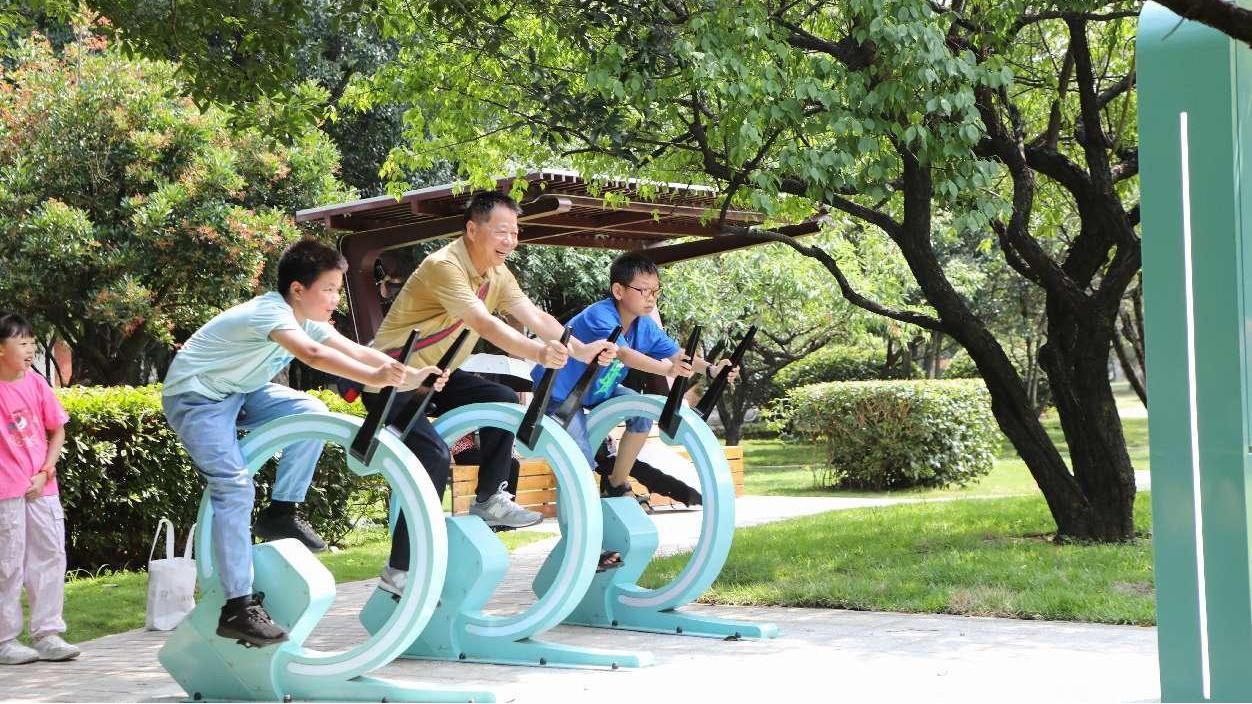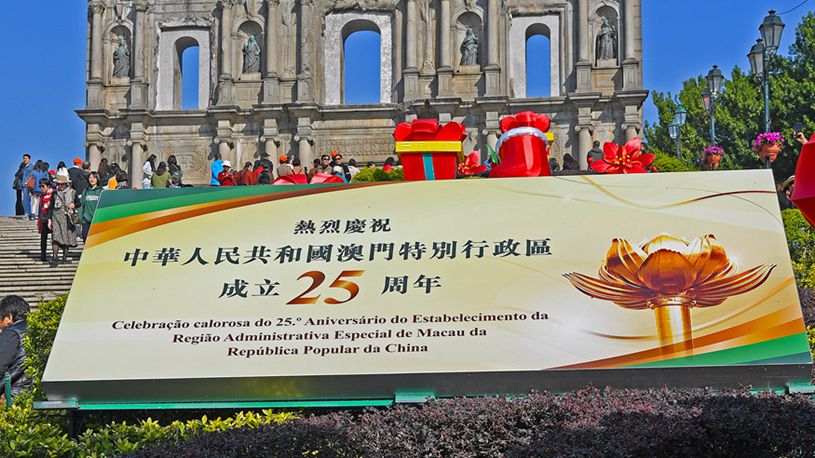Ever-opening health industry delivers hopeful ending to a family's disease-fighting odyssey
HAIKOU, Dec. 18 (Xinhua) -- The parents of seven-year-old Gungun (pseudonym) finally saw a light at the end of the tunnel when they heard that a foreign medicine they craved for their ill son might be available at a special medical pilot zone in Hainan Province.
Four years ago, the parents got the heart-wrenching message that Gungun was diagnosed with Acid Sphingomyelinase Deficiency (ASMD), a life-threatening genetic metabolic disease with extremely low incidence globally.
A DISEASE-FIGHTING ODYSSEY
Since then, the family from Wenzhou, Zhejiang Province embarked on an odyssey to seek medical solutions to the rare disease, visiting hospitals in many places around the country.
However, since ASMD therapeutics in China are mainly symptomatic and supportive treatments with no targeted drugs available, Gungun's condition further deteriorated, leaving him unable to walk properly, dine, bathe, or go to school like his healthy peers.
Promising news came for the family: in 2022, Olipudase alfa, an innovative drug for ASMD treatment, was approved to hit the market in Japan, the United States and the European Union. However, domestic agencies had not imported the drug due to the scarcity of patients in China.
"After second reckoning, we found that it is not realistic to travel abroad to use Olipudase alfa," Gungun's father said.
While seeing a doctor in Shanghai early this year, they were told there was a good chance for the drug to become available at the Boao Lecheng International Medical Tourism Pilot Zone. Established in 2013, the pilot zone was granted special policies enabling eligible pharmaceuticals and medical devices licensed abroad yet domestically unavailable to be applied for patients through streamlined procedures.
In February, the family flew to the Lecheng pilot zone and lodged their earnest request for Olipudase alfa, to which they received an immediate response. The central pharmacy of the Lecheng pilot zone commenced a mission to search for the drug through cooperation with pharmaceutical enterprises on a global scale. It helped pair domestic drug agencies and hospitals to participate in the cause.
A HOPEFUL ENDING
Roughly nine months later, thanks to coordinated efforts, Olipudase alfa officially entered the pilot zone at the Ruijin-Hainan Hospital affiliated with the Shanghai Jiao Tong University School of Medicine.
On the very day of its arrival, the medicine was administered to Gungun at the hospital, making him one of the first recipients in China.
After his initial medication, Gungun's health condition has remained stable, showing no signs of adverse reactions.
"Gungun has been receiving follow-up treatment to keep his health condition from deteriorating rapidly. Now, with the help of Olipudase alfa, the first goal is to maintain his condition, and the second goal is to reverse his disease to a certain extent. I'm very hopeful about the result," said Ma Xiaoyu, deputy director of pediatrics at the hospital.
Gungun's family also shared the optimism. "Hopefully, one day he can go to school and travel around like his peers, as well as make friends and integrate into society," said Gungun's father.
Gungun is one of the beneficiaries of diversified diagnostics and therapeutics offered by the Lecheng pilot zone.
So far, the pilot zone boasts more than 30 public, private and international hospitals. It has established partnerships with over 170 pharmaceutical and medical device companies, including pharma giants Merck & Co., Inc. and Novartis, from 20 countries and regions.
An EVER-OPENING HEALTH INDUSTRY
Building on previous supportive policies, China announced in September that it would apply exemptions on import tariffs and value-added tax for eligible drugs and medical devices in the Lecheng pilot zone before 2025.
While introducing more world-class medical resources to China, the pilot zone is also reaching out to a growing number of clients overseas, especially from Southeast Asian countries such as Indonesia.
The pilot zone is becoming a burgeoning international medical tourism destination, buoyed by China's facilitation measures, such as unilateral visa exemptions for more countries, to welcome international visitors in the post-pandemic era.
In 2023, it received 302,500 medical tourists, up 60.05 percent year on year. This year, it received over 320,000 medical tourists during the January-October period, marking a 37 percent year-on-year increase.
Lecheng's development epitomizes China's continuous endeavor to open up its health sector for the benefit of patients.
In one example, Chinese authorities unveiled a plan in September to allow the establishment of wholly foreign-owned hospitals in some major cities, including Beijing and Shanghai, as well as the island province of Hainan. In addition, China has also made efforts to accelerate the approval of new drugs already in the overseas market.
In September, China approved the use of an immuno-inflammatory product developed by French healthcare company Sanofi as a targeted therapy for chronic obstructive pulmonary disease. The drug's approval was granted even faster than in the United States and the EU, according to Sanofi.
This month, the company signed a memorandum to invest some 1 billion euros (about 953 million U.S. dollars) to establish a new insulin production base in Beijing. Frédéric Oudéa, chairman of the board of directors of Sanofi, expressed the company's confidence in the long-term growth prospects of the Chinese market.
China's policies of opening up and encouraging innovation and the sound business environment for foreign enterprises have strengthened Sanofi's commitment to participating in China's economic growth while advancing the high-quality development of its pharmaceutical industry, Oudéa said.
Photos
Related Stories
- Macaque survives over 180 days after pig kidney transplant in China
- Chinese researchers make breakthrough in precision management for thyroid cancer
- Telemedicine boosts medical services in northwest China
- More accuracy, less harm: Cancer patients benefit from heavy ion radiotherapy
- Scientists unveil new strategy for cardiac arrest resuscitation
Copyright © 2024 People's Daily Online. All Rights Reserved.









